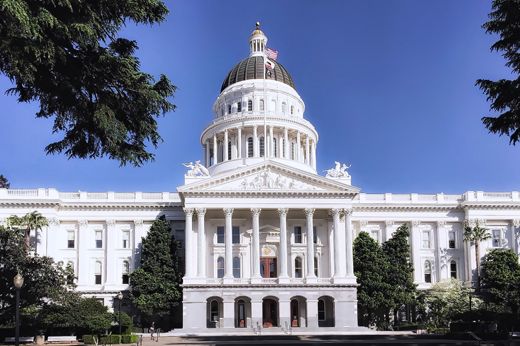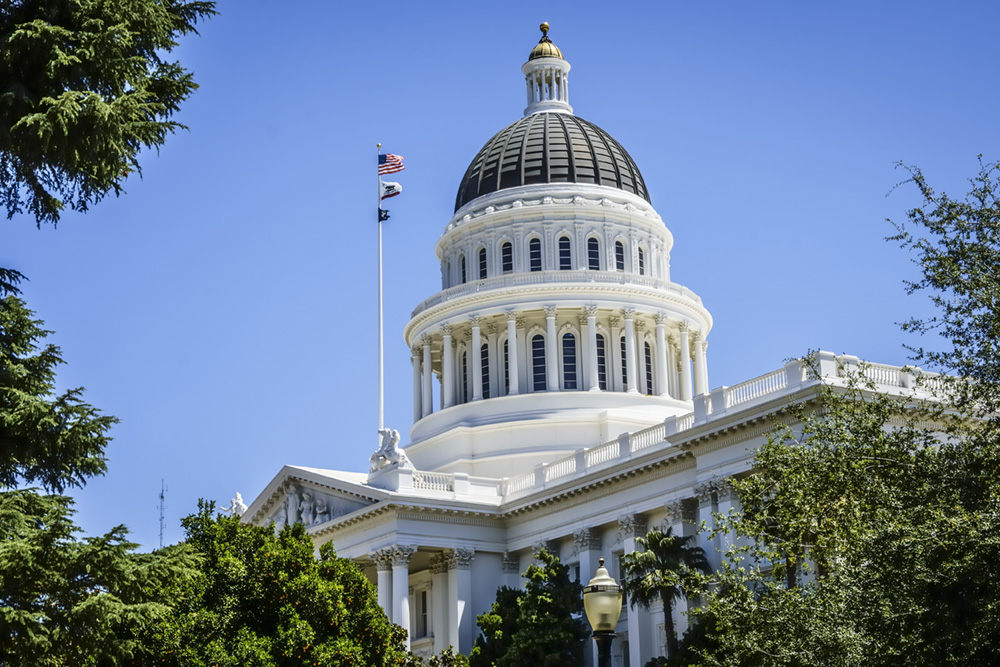Legislative action is more than writing a letter. Get to know your Assembly Member and Senator and their staff members. Remember they represent everyone who lives in their district, even if they are of a different party. Positive communication is key, so here are some tips for successful legislative advocacy.
Familiarize legislators with you, your school or district, and your issues. For example, making personal presentations to legislators and staff, or inviting your legislator to visit your school(s), is very powerful. Always call to make an appointment in advance of your visit and remember that staff members communicate regularly with the legislator and are often better acquainted with the specifics of an issue. Never underestimate the importance of a legislator’s staff. If possible, prepare position papers on education issues of concern in your region, e.g. school facilities, transportation, staff/program cutbacks, etc.
Share positive information about your school/district, such as that your school won an award and test scores are up. Invite a legislator to your school site/district to conduct a parent/community forum on a K-12 policy or budget issue. This will provide him or her with an opportunity to speak to the community and help you build a relationship with them. They will also value this input when other issues come before the Legislature for discussion.
Testify at hearings or send written statements, especially if your legislator is on the committee holding the hearing. Communication from constituents is very powerful and emphasizes the lobbyist’s efforts. Send letters or faxes, and make phone calls on specific issues to your legislator. Personalize the contact. Send a letter briefly indicating your support or opposition and the reasons why. Do not send form letters or letters asking the author of a bill to support or oppose their own bill.
Be visible! Volunteer to work on their campaign or serve on their advisory committee on education. If they don’t have one, offer to set one up for them. Contribute to their campaign. Better yet, offer to hold a fundraiser for your legislator or a promising candidate. Organize group functions featuring your legislator – banquets, legislative breakfasts, receptions, etc. Establish and participate in a legislative network for administrators in your region to provide rapid communication and action on “hot” legislative issues.
Do:
- Get to know your legislators on a first-name basis. Be aware of which committees they are on. Make sure your legislators know you by name and have seen your school/s.
- Become familiar with the legislative process and schedule your legislative efforts/ involvement accordingly. Become aware of election cycles and the political process.
- Be considerate of legislators’ time and schedule demands – make your visit shorter than scheduled. Occasionally, call on your legislators when you don’t want anything specific, but be brief.
- Get to know legislators’ district office staff. Understand the role, the importance and the power of the staff. Try to meet with your legislator in his/her district office.
- Attend legislators’ district fundraisers.
- Familiarize yourself with your legislator’s background and interests. Each legislator has information about themselves on the legislative web sites. Learn more at www.assembly.ca.gov or www.senate.ca.gov.
- Cultivate and maintain variety of community contacts (e.g. business, media, civic, political). Play an appropriate role in the local political process.
- Serve as a resource for your legislators on education issues by being available and willing to listen to your legislators, knowing or finding the facts and delivering on your promises.
- Be aware of and sensitive to political realities and be sure you know your representatives’ agendas, both legislative and political. Know who your legislators’ supporters are.
- Use all methods of communication: personal visits, telephone calls, letters, e-mails and/or mutual friends.
- When requesting information, provide as accurate and complete a description of your request as possible.
- Remember to always say (and write) “thank you.” Follow up meetings with a letter of appreciation and any information promised or pertinent.
- Follow-up with the legislator’s K-12 staff after the meeting. Even if the staff was not in the meeting, the legislator will almost always share the conversation with his or her staff. Providing as much information to staff is helpful as well.
- Know what committees your legislator serves on and what caucuses/groups they belong to. Just because they may not serve on an education-specific committee, does not mean they cannot be helpful on your issues. Likewise, a legislator’s participation in the Women’s Caucus, the Latino Caucus, etc. can open up new avenues of communication and advocacy.
Don’t:
- Be defensive about education issues
- Call your legislator only when you want something or have bad news.
- Just drop in to see your legislator when you could have made an appointment.
- Concentrate on the content of the legislation to the exclusion of the political realities.
- Gang up on members or staff; keep “battalion lobbying” to a minimum.
- Overstay your welcome on legislative visits.
- Use inflated or untrue facts to back up your position.
Phoning your legislator
Preparation
- Determine your goal and list points you wish to make in the course of the telephone conversation.
- Know number of appropriate bills, dates of introduction and any subsequent amended versions. Be familiar with provisions of bills and your rationale for support or opposition.
- Know how bills affect schools in the legislator’s district.
- Secure name of specific staff person to be contacted.
Suggestions for conversation
- State your name, position you hold and district.
- Ask to speak to appropriate legislative staff (if calling about a bill).
- Ask for appointment secretary or personal secretary if calling to make an appointment.
- As briefly as possible, express your questions or your views on the issue.
- Do not argue. Do not antagonize.
- Determine position held by legislator on the bill or issue, if possible.
- If it is favorable, express appreciation.
- If the legislator is undecided: “What kind of information would assist in taking a position? How can we help?” or “Would a meeting with us to discuss the issue be of some help?”
- If opposed: “We hope they will take another look at this issue. Would they be willing to meet with us to discuss it?”
- Secure the name of staff person responding to your call.
- Remember to follow up by sending a letter to your legislator acknowledging your call to the office and the assistance given by staff.
Writing to your legislator
Legislators want to know how voters in their districts feel about the problems which challenge effective government. Public officials need to understand what individuals and organizations like and dislike.
Constituent letters, if well written, can be a potent vehicle for making our voices heard in Sacramento. When you write to your legislator, follow these suggestions to make your message more effective.
Address your legislator correctly:
The Honorable (full name)
Member of the California State Assembly (or Senate)
State Capitol
Sacramento, CA 95814
Dear Assembly Member or Senator (last name):
Structuring your letter
- Keep your letter short: Make your point but don’t waste words. You should try and keep your letter to one page. A longhand letter is perfectly proper, but it too should be kept short.
- Use appropriate stationery: If you’re writing on behalf of your district, be sure to use a printed letterhead.
- Write to your own representatives: Tell your views to the legislators who represent you. Legislators care about what their constituents think.
- Introduce yourself: Tell who you are in your letter. A simple statement such as “I am the principal at Elmwood High School” is important. If not writing on letterhead, remember to include your full name, address, and phone number. Also, reference if you have previously met the legislator or his or her staff at a local community event.
- Be specific: Identify the issue and desired action within the first or second paragraph. Clearly identify the particular legislation that you are writing about, such as AB 75 (Steinberg), instead of “I’m writing about the administrator training bills discussed in the newspaper article last Sunday.” Moreover, because bills are amended often, it is helpful to identify the specific provision or amended version that you are discussing. For example, “I am writing about AB 75 (Steinberg), as amended on April 5, 2002,…
- State your case: Tell your views as concisely as possible. What the legislation means to your school and community is your most potent argument. And, whenever possible, discuss legislation in terms of your school district, its unique needs, problems, and assets. Give specific reasons why a proposal warrants support or opposition and exactly what steps you are asking the legislator to take.
- Ask for a response: Whenever appropriate, include a question in your letter which will elicit an answer. Ask the legislator for his or her view on the matter of its impact on your school.
- Try telephone, fax, overnight mail or e-mail: These are especially useful when time is limited and your message is urgent.
Always:
- Be concise and factual.
- Put your name and return address on the envelope as well as in the proper place on the letter itself.
- Write legibly and avoid careless errors in spelling and grammar.
- Use plain or personal stationery when you are writing as an individual. If you are writing as a representative of a group, use organization stationery.
- Let the legislator know how the particular measure will affect schools in their district.
- Include enough pertinent facts and reasons to substantiate your position.
- Be courteous and sincere.
- Identify the bill with which you are concerned, using title and number wherever possible.
- Write a letter of appreciation when your legislator does something of which you approve.
Do not:
- Overstate or exaggerate your position.
- Flaunt the fact that you are a “citizen” and “taxpayer.”
- Guess at the name, the number or the contents of the bill.
- Base your comments on rumors or guess at the facts.
- Use mimeographed letters, printed postal cards or form letters.
- Limit yourself to generalities.
- Leave out, or assume the reader’s knowledge of, essential details.
- Use threats or personal attacks.
- Use insincere flattery or flowery terms.
- Write only letters of criticism.
- Use inflated or untrue facts to back up your position.
Stay up to date on ACSA’s Advocacy efforts and events here on our website. Also, keep in contact with the ACSA Governmental Relations department to know what’s happening in Sacramento, ask for help whenever you need it, and to apprise them of any legislative actions or contacts you make (the earlier, the better). Make sure that ACSA has your email address so that you receive periodic updates on important issues and can let the Governmental Relations staff know what’s happening with your legislator.
In April, Legislative Action Day brings ACSA members together in Sacramento for a two-day advocacy conference. ACSA staff and experts in the field provide members with briefings and guidance on current issues in education, giving members the tools and the opportunity to directly lobby the Legislature and carry a message of leadership, support and investment for the students and educators in California.





























